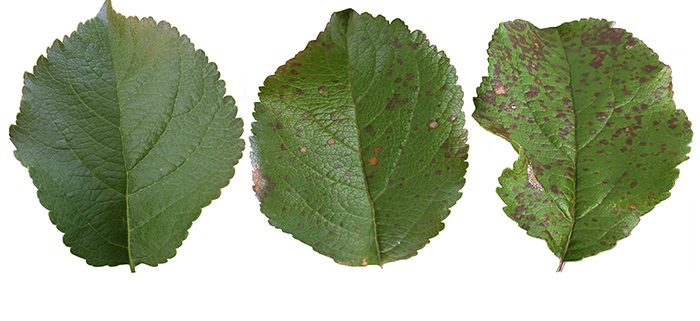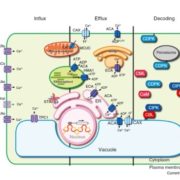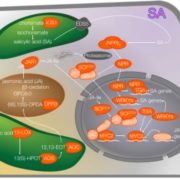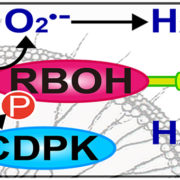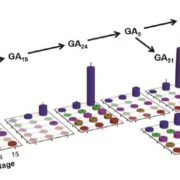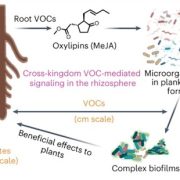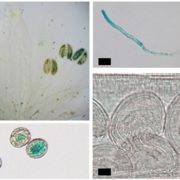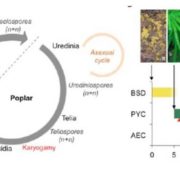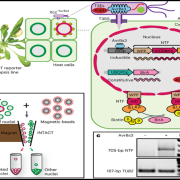Sorbitol Modulates Apple Resistance to Alternaria
Meng et al. show that sorbitol acts as a signal regulating resistance to the fungal pathogen Alternaria alternata in apple.Plant Cell https://doi.org/10.1105/tpc.18.00231
By Dong Meng, B. Gillian Turgeon and Lailiang Cheng
Background: Sugars produced by photosynthesis fuel plant growth and development, but may also play a role in plant-pathogen interactions, acting as a carbon source for pathogens or as signals regulating plant defense. Their role as a carbon source was demonstrated by the discovery of proteins residing in plant cell membranes that control access, by pathogens, to extracellular sugars. Certain bacterial pathogens are able to hijack these proteins making sugars more available for their proliferation and concomitant disease. However, we know very little about the role of sugars, if any, in modulating plant defense via regulating disease resistance (R) genes.
Question: We wanted to know if, and how, a sugar modulates plant disease resistance. We explored this by monitoring fungal disease on leaves of transgenic apple trees with reduced levels of sorbitol compared to wild-type apple. Sorbitol, a sugar alcohol, is a major photosynthetic product and a transport carbohydrate in many tree fruits of the rose family.
Findings: We found that transgenic apple trees with reduced sorbitol levels were susceptible to the fungus Alternaria alternata whereas wild-type trees with normal sorbitol levels were not. We identified an R gene in the wild-type apple by analyzing gene expression in transgenic and wild-type leaves and tracking how expression responds to feeding of sorbitol or sucrose or to inoculation with the fungus. We also identified a fungal gene encoding a small secreted protein (effector) that interacts with the apple R protein. In wild-type trees, expression of the R gene is high, conferring resistance to the fungus. In the transgenic trees, however, reduced sorbitol levels decreased expression of the R gene, leading to susceptibility to the fungus. Feeding transgenic leaves with sorbitol increased expression of the R gene and partially restored resistance to the fungus.
Next steps: Our work demonstrates that sorbitol acts as a signal modulating apple resistance to A. alternata. Next steps are to understand how the sorbitol signal is sensed and transduced in apple and how plant-A. alternata interactions have evolved in relation to sorbitol levels. Our goal is to improve resistance to A. alternata in plants that make or do not make sorbitol.
Dong Meng, Chunlong Li, Hee-Jin Park, Jonathan González, Jingying Wang, Abhaya M. Dandekar, B. Gillian Turgeon, Lailiang Cheng (2018). Sorbitol Modulates Resistance to Alternaria alternata by Regulating the Expression of an NLR Resistance Gene in Apple. Plant Cell Jul 2018, 30: 1562-1581; DOI: https://doi.org/10.1105/tpc.18.00231


